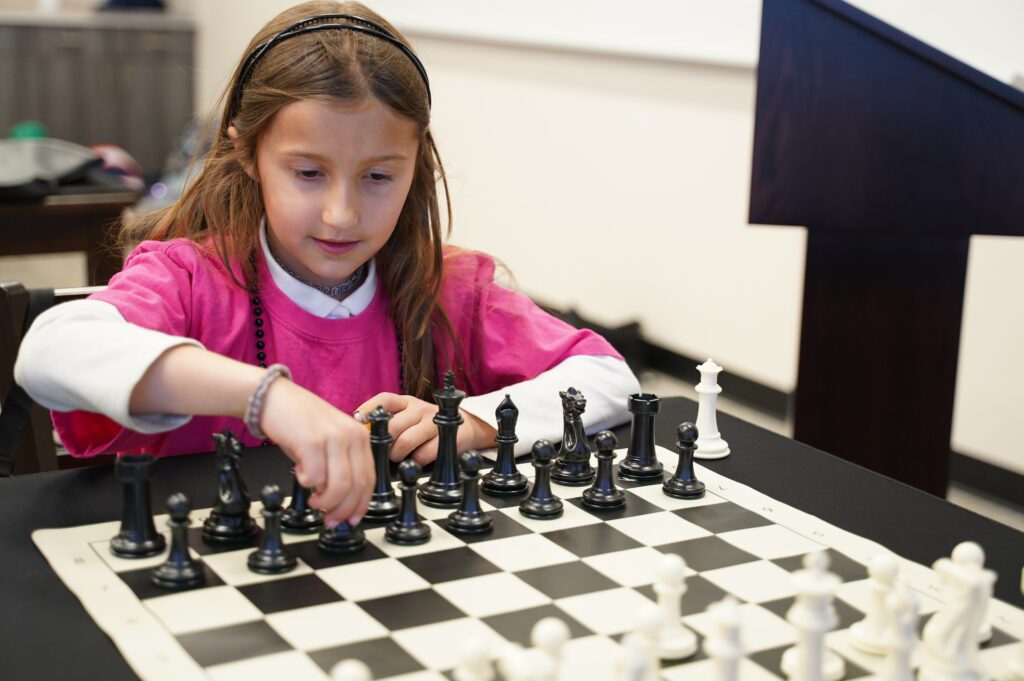
Faithful, Dynamic, and Wholesome
While classroom learning is central, we offer so much more at Arma Dei Academy. From academic field trips and STEM camps, to performing arts and athletic activities, we offer comprehensive and diverse experiences beyond the classroom. We recognize that all truth, goodness, and beauty are divine absolutes designed to develop biblical wisdom and Christian virtue by equipping students to know, love, and apply these absolutes to the world around them.

Speech Meet
Arma Dei Academy’s students participate in annual in-house and regional speech meet each year in order to provide a platform for students to develop rhetoric skills from an early age. This opportunity makes use of classical educational pedagogy which challenges students to develop the skills of memorization, public speaking, and social grace.
Speeches are judged on 9 separate qualities with a maximum of 5 points given for each characteristic. In scoring, it may be helpful to consider the descriptions below for each score:
1. Beginning
2. Developing
3. Satisfactory
4. Maturing
5. Strong
Judges should start with the assumption that a student begins his or presentation with a 3 or “Satisfactory” on each judging category. As the speech proceeds, the judge will score each category higher or lower based on the performance.
In general, the following descriptions apply to each ranking:
Beginning may require some prompting
- May require some prompting
- Little to no eye contact—looks down or stares straight ahead
- May be difficult to understand or hear the presentation
- Little or no emphasis of words, expression, or punctuation
- Does not demonstrate an appreciation for or understanding of the selection
Developing Requires little prompting
- Requires little prompting
- Little eye contact—may look at the judges, but not the audience
- May sound detached or monotone with little emphasis or variation; may appear stiff
- May not demonstrate an appreciation for or understanding of the selection
Satisfactory
- No prompting required; the selection has been memorized
- Speech is clear and understandable
- Maintains eye contact with judges and audience
- Some variety of emphasis and voice inflection observed; may or may not use gestures for emphasis.
Maturing
- Clearly knows and demonstrates an understanding of the piece
- Maintains good eye contact with the judges and audience
- Presentation flows well with natural emphasis and variety of voice inflection
- Speaker is comfortable and natural; gestures are natural and not forced.
Strong
- Excellent memory and delivery of the selection
- Excellent eye contact with judges and audience
- Speaker fully embraces the meaning and spirit of the selection
- Voice, body stance, gestures demonstrate the speaker “owns” the selection
A maximum of 45 points can be earned on the scoring sheet. However, points are deducted for failure to follow all directions regarding introductions and/or explanations. Please read the scoring sheet carefully to be sure that deductions are made correctly. A maximum of 2 or 5 points may be deducted, depending on the category.
1. Practice your selection every day at home for your parents. Do your very best each time.
2. Stand up tall, with your hands comfortably at your sides in a relaxed posture. Look at your entire audience.Say the required introduction and then pause briefly before you begin the selection. At the end of the selection, hold your last motion or feeling for a few seconds. Then go back to your beginning position as you smile at your audience. Wait a few seconds before returning to your assigned seat.
3. Say your selection with appropriate expression or feeling. If your selection is a happy or sad one, be sure to show that feeling with your facial expressions and your voice. Other feelings that might go with your selection include fear, anger, wonder, worry, surprise or pride. Be sure your facial expression matches the feeling that you are trying to show. Have a friend, parent, or a teacher watch and listen to you and tell you whether you are emphasizing the correct feelings with your voice and your facial expression. Practicing in front of a mirror or having someone take a video of you may also be helpful.
4. The use of gestures will enhance your presentation if they are natural for your selection. Any gestures you use should add to your selection, making it more interesting, more believable, and more enjoyable for you and for your audience. Learn a few natural gestures right away, and practice saying your selection with them every time. Avoid stiff or unnatural gestures.
5. Be sure to speak slowly and clearly. Stop after each thought so that your audience can hear both the words and the thoughts you are expressing. Be careful to enunciate your words or to say every sound (beginning, middle, and ending) of every word in your selection. Using a voice recording device is a tremendous help in learning and practicing your selection. Since you will not be using a microphone, you need to make sure you are able to project your voice for an audience. You may want to practice in a large room and speak loud enough so that others can hear every word from across the room.
6. Since you have memorized and learned your selection, you should show confidence as you speak. Enjoy the experience of sharing what you have learned with the judges.
Recitation & Art Showcase
Reciting knowledge is an important skill. It requires different mental faculties from writing or reading, typical ways of evaluating learning in the 21st century. A memorized and recited piece is more easily “accessed” in the student’s mind than, for example, a string of words encountered in a novel. And learning to speak a poem or a jingle — with clarity and expression — is a foundational skill for all public speaking, useful for the student’s entire life.
At Arma Dei’s annual Recitation & Art Showcase, students in each grade share small samples of what they’ve been learning before an audience of family and friends. It is a highlight of the school year, when the whole community comes together to celebrate our students and to glorify God.


House System
ADA’s house system exists to fufill our school mission by fostering a culture of professionalism, courtesy, and Christ-like service to God and others among students. This culture strengthens our academic environment, prompting students to do their best in preparation for success in their future academic and professional pursuits. The house system achieves these goals in three ways:
- by giving students incentives (house points and corresponding awards) to meet high standards for student competition, comportment, and interaction;
- by creating house-specific, school-wide, and community-oriented opportunities for service to others;
- by giving older students opportunities to lead and mentor younger students within their houses in the pursuit of ADA’s standards for student comportment and service to others.
Arma Dei’s Academy’s four houses are: Avari, Laiquendi, Noldor, and Vanyar, adopted from Elven tribes in J.R.R. Tolkein’s Silmarillion. While certain aspects of each house’s identity are inherited from Tolkein (e.g., Laiquendi are wood-elves), students are encouraged to create and sustain a unique identity for their own house.
House points can be awarded to an entire house or to individual students within houses. They are awarded in four categories: competition, decorum, service, and nobility.
Extra-Curricular Activities
Arma Dei offers various after-school clubs as a great way for students to practice new skills, develop friendships, and explore a variety of interests. Clubs are led by parents and teachers and vary each semester. Students have enjoyed activities such as chess, knitting, ASL, and soccer.


